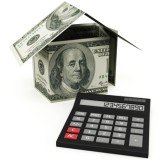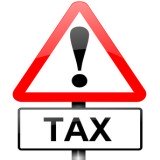How to Calculate Rental Property Depreciation
Are you looking for a complete guide on rental property depreciation? Then search no further - Learn how to calculate depreciation of rental property with our step by step instructions.
What is Rental Property Depreciation? - Definition
Like all physical structures, rental units go through wear and tear. This erodes their value over time and limits their useful lifespan. Depreciation is this gradual fall in value over the useful lifespan of a rental property.
Depreciation of rental property is a important concept for landlords since it has a big impact on their rental property taxes. For tax purposes, you can only claim depreciation for investment properties (e.g. rental properties). Home owners are not allowed to include depreciation as property expenses.
It's also important to know that only the physical structures of your rental property can be depreciated. So that excludes the land which your rental property sits on and all open areas.
How to Calculate Rental Property Depreciation
Property depreciation is calculated using the straight line depreciation formula below:
Annual Depreciation = (Purchase Price - Land Value ) / Useful Life Span (in years)
Annual Depreciation: Amount of depreciation expenses that you can claim per year
Purchase Price: Amount paid when you bought the property
Land Value: Fair market value of comparable vacant land (value can be obtained from property tax records or assessors)
Useful Life Span: Number of years to depreciate the property. This value is dictated by your tax laws. For U.S. residential rental properties, it would be 27.5 years (see below)
Depreciation of U.S. Residential Rental Property
If your property earns at least 80% of its revenue from rented housing units, then it is a residential rental property by definition. Hotels and motels do not fall into this category.
Residential rental properties in the United States are depreciated using the Modified Accelerated Cost Recovery System (MACRS) by General Depreciation System (GDS).
Yes, the names are quite a mouthful but don't worry about that - All you need to know is that MARCS uses the same straight line depreciation formula above to calculate depreciation, with a fixed value for 27.5 years for useful life span.
For the first year that you own the rental property, you will only be able to claim a partial depreciation depending on which month you bought it:
Partial Depreciation Percentages for Year 1
|
Month |
Depreciation Percent |
Example of Rental Property Depreciation Calculation
Let's say that you bought a rental house for $200,000 in April 2012 and the land is valued at $40,000. How much is your depreciation for 2012 and 2013?
|
Depreciation for 2012 |
= (Purchase Price - Land Value) x 2.576% (highlighted above) |
NEXT: How Rental Property Depreciation Affects Your Taxes



